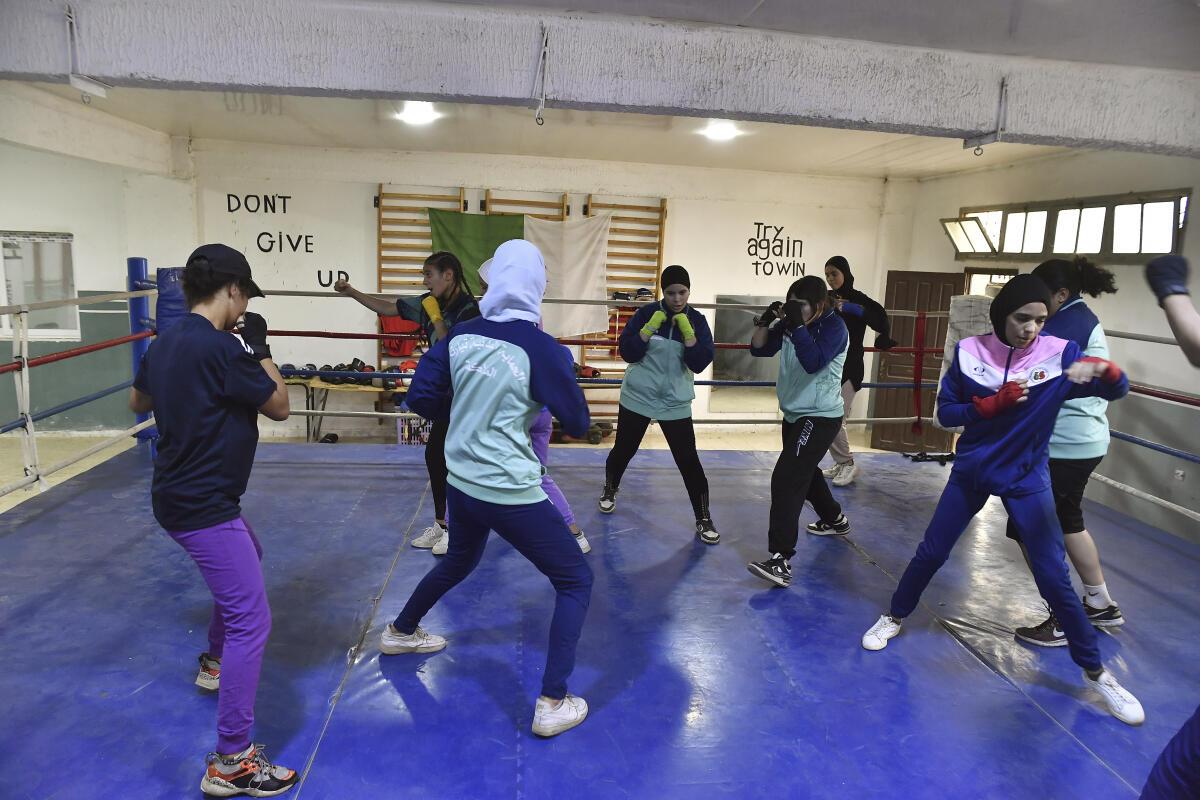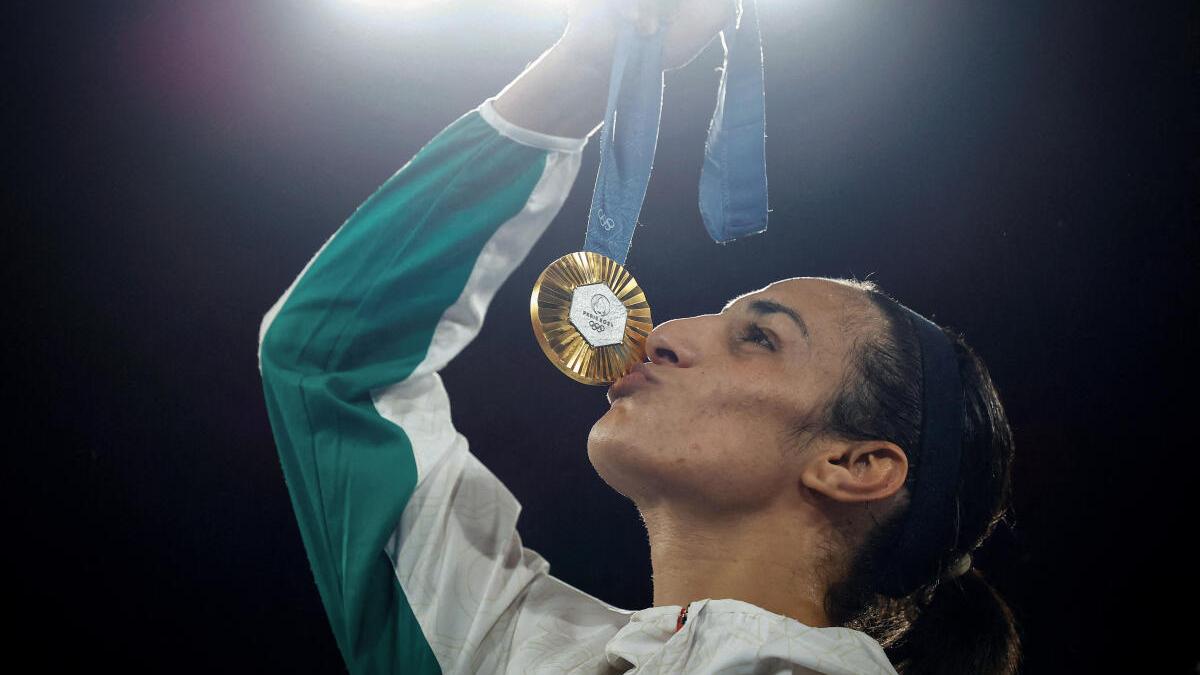Imane Khelif’s Olympic gold inspires Algerian girls to take up boxing
In the weeks since Algeria’s Imane Khelif won an Olympic gold medal in women’s boxing, athletes and coaches in the North African nation say national enthusiasm is inspiring newfound interest in the sport, particularly among women.
Khelif’s image is practically everywhere, featured in advertisements at airports, on highway billboards and in boxing gyms. The 25-year-old welterweight’s success in Paris has vaulted her to national hero status, especially after Algerians rallied behind her in the face of uninformed speculation about her gender and eligibility to compete.
Amateur boxer Zougar Amina, a medical student who’s been practicing for a year, called Khelif an idol and role model.
“Since I’ve been boxing, my personality has changed: I’m more confident, less stressed,” she said, describing the sport as “therapy to fight shyness, to learn to defend myself, to gain self-confidence.”
In Ain Taya, the seaside town east of Algiers where Amina boxes, what local media have termed “Khelifmania” is on full display.
Behind a door wallpapered with a large photograph of the gold medalist, punching bags hang from the ceiling of the local gym, and young girls warm up near a boxing ring surrounded by shelves of masks, gloves and mouth guards.
The 23 young women and girls who train at the gym — an old converted church — all dream of becoming the next Khelif, their coach Malika Abassi said.
Abassi said the women imitate Khelif’s post-win celebrations, hopping around the boxing ring and saluting fans. She’s worried that the interest in boxing will grow so rapidly that her gym won’t be able to handle it.
“We’re getting calls from parents wanting to sign up their daughters,” she said. “I’m the only coach and our gym is small.”
READ | Leaving gender row behind, Imane Khelif returns to Algeria with Olympics gold medal amidst fanfare
Algerians from all walks of life flocked to squares in the country’s major cities to watch Khelif’s matches broadcast on projectors. Khelif’s story endeared her to the majority of the conservative country’s population, although a few prominent imams and Islamist politicians have criticised the example she sets by wearing her boxing uniform and not a headscarf.
Still, Amina Abassi, another amateur boxer at the same gym unrelated to her coach, said she believes the deep well of support for Khelif will overwhelm any criticism.
“I’m convinced that even conservative families will allow their daughters to take up boxing,” she said. “Imane has broken through the wall of false modesty and hypocrisy.”

Girls train at Ahmed Qayed school, where Olympic boxer Imane Khelif trained as a youngster, in Tiaret, Algeria
| Photo Credit:
AP
Girls train at Ahmed Qayed school, where Olympic boxer Imane Khelif trained as a youngster, in Tiaret, Algeria
| Photo Credit:
AP
Noureddine Bouteldja, a former amateur boxer and sports journalist, said Khelif has transcended boxing and become a “social phenomenon” throughout Algeria thanks to her personal story and the scrutiny she faced from famous people around the world who — unlike Algerians — saw her advancing in the Olympics as part of the culture war over sex, gender and sport.
Algerians rallied behind Khelif in the face of criticism from Donald Trump, Elon Musk, J.K. Rowling and others who falsely claimed she was transgender. They largely interpreted attacks on her as attacks on their nation itself. And unlike much of the international community that coalesced behind Khelif, on social media most couldn’t register the thought of a transgender athlete from Algeria.
“It’s the victory of a woman who has shown extraordinary resilience and phenomenal strength of character in the face of the campaign to denigrate her gender,” Bouteldja said.
Boxing coaches and administrators said Khelif’s rise from a poor child in rural central Algeria to worldwide fame has made her an inspirational figure. Mourad Meziane, head of the Algerian Boxing League, expects a huge spike in registration among young women at the start of this school year in mid September.
Algeria currently has 30 regional boxing leagues and 10,000 athletes participating nationwide, he said.
“The impact is inevitable and will only be very positive for women’s boxing in Algeria,” Meziane said.
Civil society figures and activists said the impact is also sure to reverberate far beyond the boxing ring.
Attorney Aouicha Bakhti said Khelif’s story will have a lasting impact on Algerian culture and be a counterweight to strands of society that discourage women’s participation in sports.
“This kind of epic helps society, ours in this case, which is in the process of retreating in the face of fundamentalist ideals,” said Bakhti, a prominent feminist and political activist.



